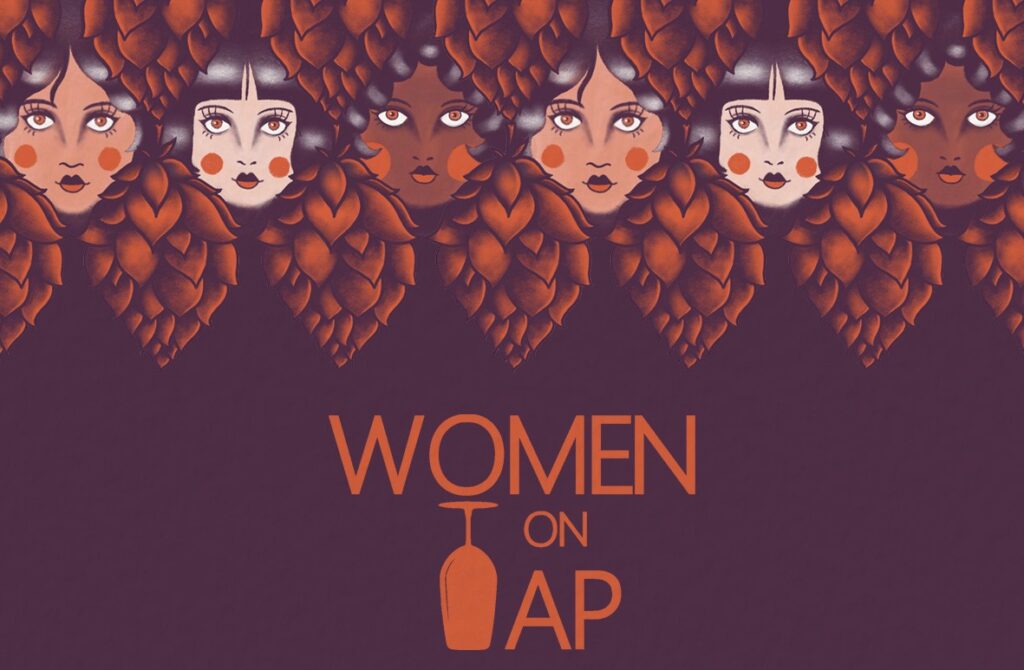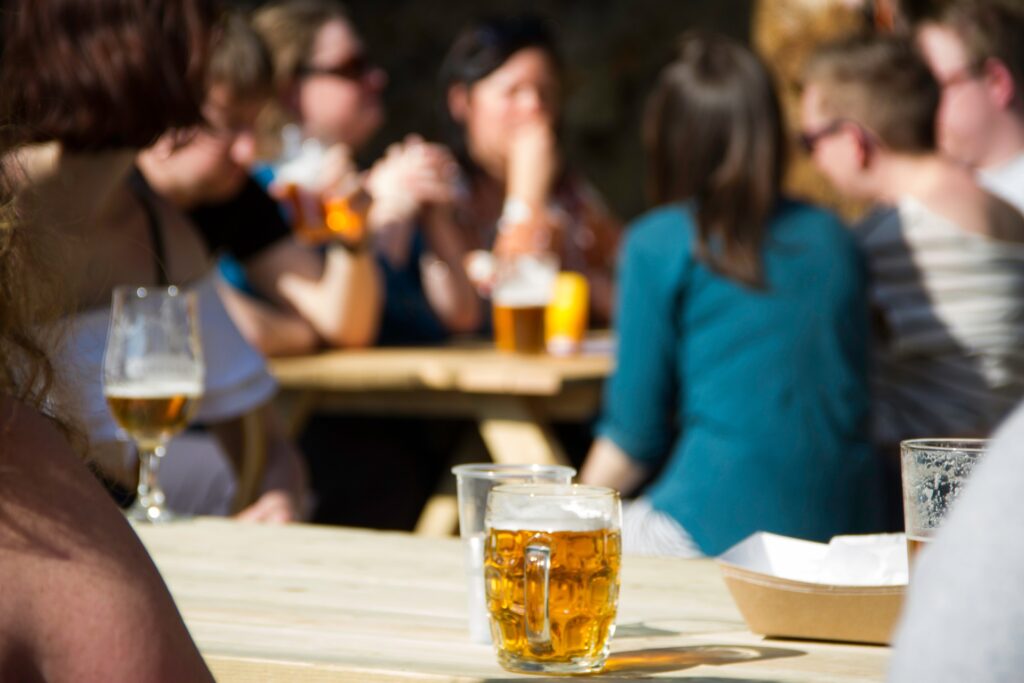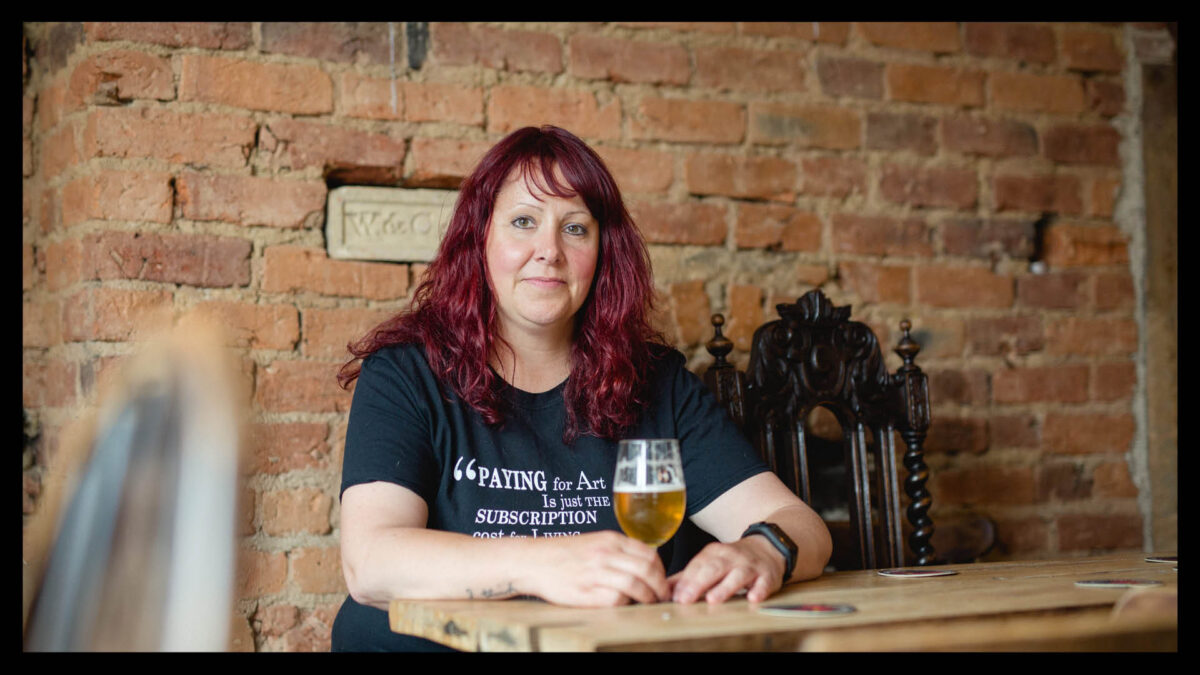Amid the backdrop of Brewdog’s allegations of sexism and harassment, Rachel Auty talks holding breweries accountable, how to educate on sexism and celebrating exceptional women working in the field through online and live events.
“It feels like about 20 years ago since we started! Not just four,” laughs Rachel Auty, creator of Women On Tap, the festival bringing together women and beer in Harrogate, North Yorkshire which ran last week from 9-13th June this year. So much has changed since they started in 2017 she says, but the past year in particular has really shifted how the festival shaped up in 2021.
Due to the pandemic, the 2020 festival was held completely online, meaning visitors could tune in from around the globe. “In the first few years, it kind of went from being a town centre festival, to a regional event with a bit of a national profile. Last year though going online changed everything,” says Auty. “We ended up with people from Australia, America, Italy… It was quite an eye opener when we realized that we went global!” As a result, Auty says they can’t go back to the same structure as before. “We can’t just be a town centre festival again, we’ve got to have some regard for those new audiences as we keep growing and expanding and reaching more widely,” she says.
This year, the festival included virtual experiences, creative commissions, and live events. For the virtual experiences, Auty tried to make them as interactive as possible so that international audiences could join, as well as anyone who wasn’t quite ready to go back indoors yet. For one of these events, beer sommelier Annabel Smith, gave guided tours of beers brewed in Harrogate. Auty says she spoke about “the flavours, the history of beer in the town, it’s really nice to be able to put the spotlight on Harrogate in that way.”
For the creative commissions, Auty invited people to respond to one of four themes: women in lockdown; a vision of equality; beer – more than just a drink; and what is a pub? People were invited to respond creatively through writing, music or art, and were paid for their commissions if selected. They ended up commissioning six people to produce what they proposed. “We got such a variety of stuff this year,” says Auty. “There’s an article, a podcast, a short film, we’ve got a digital painting, a digital animation series, and a piece of embroidery.”

The final strand which echoes the same structure of the festival pre-pandemic, is the live events. There was “a music gig, some pop-up tastings, and more serious educational events,” says Auty. “Everything’s delivered within specific COVID-19 restrictions. With the tastings for instance, there’s three sessions where there’s a maximum of five places each. So they’re very intimate, carefully managed events.”
There’s never been a more pertinent time to celebrate women working in the beer industry. At the start of May this year, an outpouring of sexist allegations against some American breweries went viral on @ratmagnet, the Instagram account belonging to Brienne Allan, production manager at Notch Brewing Co., Massachusetts. Allan had asked if anyone else had experienced sexism in the brewing industry in her Instagram stories, and received hundreds of responses calling out many big names. Following this, beer writer Siobhan Hewison put together several posts on her account @britishbeergirl, calling out several British breweries on their unacceptable treatment of female staff.
With under a month until the launch of Women On Tap, Auty knew that something had to be done, especially since a couple of their sponsors were named in the allegations. The festival is built entirely from sponsorships, making it difficult to know how to approach the situation. “Knowing exactly what to do, and what to say was tricky, but we knew we couldn’t do nothing,” says Auty.
“We had a little bit of pressure from other sponsors who were asking us to do something because it was making them feel uncomfortable, as they were going to be publicly listed next to these names that were coming out.” With some help from their advisory board, they decided to remove the names of the sponsors accused from their website, and terminate all publicity for them. “We want to let people know that we’ve always stood against harassment as an organization, it’s why we exist,” she says.
The allegations are an eye-opener to the immense work that still needs to be done to ensure breweries are safe places for women to work in. “The allegations make you think about what’s actually going on within businesses behind closed doors,” says Auty. “A lot of these breweries don’t have HR departments, or all of these corporate policies and commitments, so it’s difficult to know how you address these things as an organisation. There’s no robust set up in place, and that certainly needs looking at.” As a result, trying to build representation of women in the beer industry is difficult. “Representation matters. It’s important that other women can see people like them working with beer,” says Auty. “Following these allegations though you know you have to think why would any woman want to work in beer? It is problematic, because it acts as the opposite of the representation in that it’s going to put people off.”
One of Women On Tap’s more serious events was a collaborative panel with New York-based anti-harassment charity Chalk Back, called United Against Harassment. The session focused on educating people about the theme and how it affects hospitality, as well as how it can be avoided and approached. “Believe it or not, this session was already arranged before all of these allegations started coming out, but it feels more fitting than ever.” Following the session, they’re also planning to launch a social media campaign to continue educating about misogyny in the hospitality world.
Advocating for women’s rights to equality, whilst also celebrating the brilliant work they do in the beer industry is key to change, says Auty. “It’s so important that we address these issues, and fix them to make beer a safe and welcoming place for women to choose legitimate careers in,” she says. “Only then can we start to make it a truly equal industry. It’s going to be years and years and years before we really see the fruits of our labour. But you can’t give up, you need to just keep pushing.”


